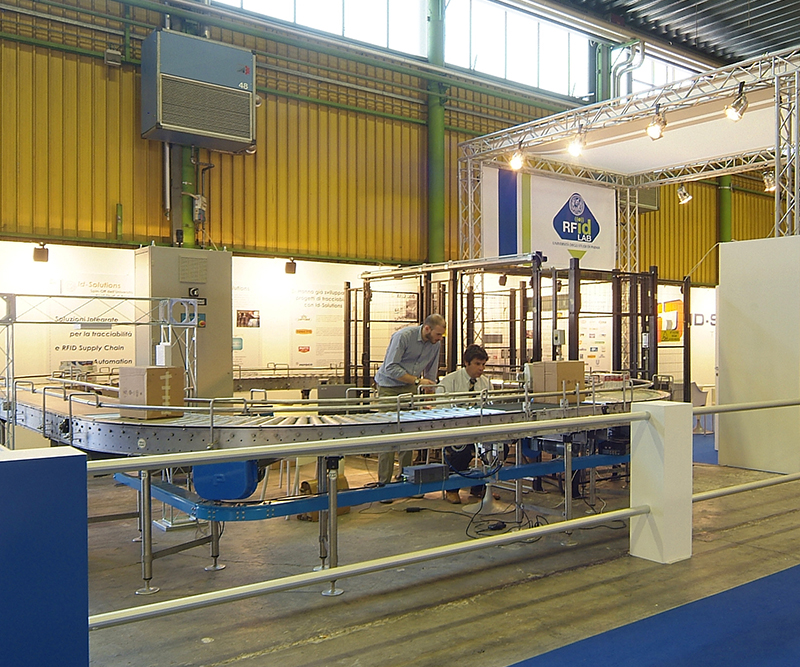Before Covid-19, research projects were already exploring digitisation in education and research as well as novel forms of location-independent networking of laboratory infrastructures. In the research project DigiLab4U (Open Digital Laboratory for You), that Parma University cofounded, real laboratories are digitised, linked with virtual components and the synergies between the two approaches are explored. The idea is to give access to a digitised and networked learning and research environment.
RFID Lab becomes digitised
In order to digitise the RFID Lab while maintaining the practical experience, a remote control of the laboratory is required. In order to achieve this, three separate interventions have been planned:
- Hardware upgrade
- PLC and software upgrade
- Custom LabMS (Laboratory Management System).
Hardware upgrade completed
In December 2020 the hardware upgrade was completed. The buffers were improved by replacing the gravity roller tracks with three-meter conveyor belts consisting of a low friction part and a high friction part. Up to eighteen different coupled products/RFID tags can be stored on the low friction belts. The high friction belts, on the other hand, will be used to load/unload the parcels from the test ring to perform the various tests. A bar code reader has also been installed for the identification of the shipping cartons, as well as two stepper motors that rotate the Far-Field antennas.
Thanks to the installation of the new components and once the PLC software has been upgraded, it will be possible to carry out tests on more than 800 different combinations of coupled products/RFID tags. By changing the type and orientation of the antennas, this number can increase to more than 3000 different measurements without changing the buffer set-up.
Students and companies can access the lab from remote
The subsequent creation and installation of the Custom LabMS will finally allow students to access these 3000+ measurements from remote giving them the opportunity to make considerations on real data.
The new set-up of the laboratory can also be used by companies that plan to install an RFID system and need to carry out customized tests on their products. Thanks to the labs facilities, it will be simple for them to identify the RFID tag and antenna system that best suit their needs.


